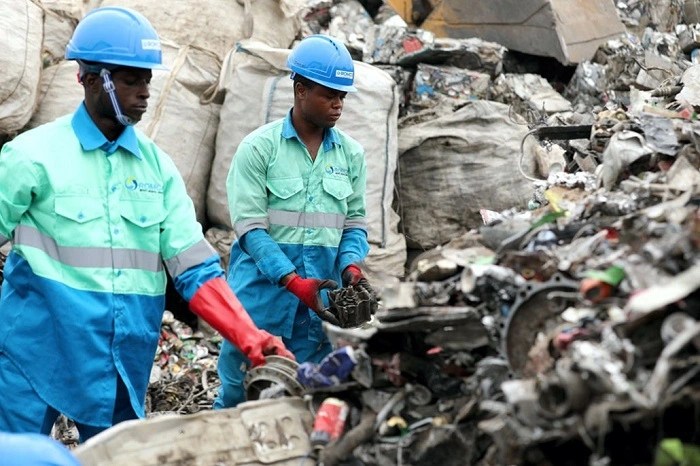Investing in emerging markets is like sex: For good or bad depends on your position.

It’s not a bandwagon, Africa’s emerging market is a hotbed for foreign investors; 75% of total investment in 2021 was made by foreign investors. Across all investors, Africa received a significant injection of cash: a grand total of $5.2bn was invested across 604 companies, 4 startups of which are now worth over $1bn.
West Africa experienced the largest proportion of VC deals in 2021, receiving a 33% majority of total deals made. Albeit slow, investors placing their capital into West Africa is contributing towards the area’s predicted economic recovery. In 2020, Nigeria’s GDP was reported at $432.29bn; which grew to $440.78bn in 2021. Forecasts for FY22 continue to predict growth, with GDP expected to increase to $445bn. FY21 GDP in Ghana exceeded forecasts; the economy grew 5.4%, despite mining depreciating by -12.1%. Year on year, GDP from mining for both countries has been steadily declining: 2021 is not in isolation.
However, the decrease of GDP in mining (similar in Nigeria, where Q4 2021 reported a record low) is good news for the renewables sector. A decline in mining leaves an opening for a replacement. Namely, secondary production (or urban mining): sourcing existing materials and repurposing them into useful products. It’s not just materials that can be repurposed: existing equipment, workers, and worksites can be placed into other industries, and mining sites could be transformed into housing developments or industrial sites – creating yet another opening for investing venture capital and furthering economic growth. Opportunity is rife in Africa’s sustainable frontier market, which is good news if you have a penchant for investing in emerging markets…if not, it might be time to assess your position.
By 2027, Fortune Business Insights reports the global aluminium market is projected to be worth $242.44bn, over double the reported value in 2019 ($164.23bn). An increase reflective of the forecasted 80% rise in aluminium demand by 2050 – not least due to the drive towards electric vehicles, electric grid expansion, and increased need for product packaging. Primary resources of bauxite are finite (like to ‘we’re gonna need a lot of aluminium’ article) and it’s time to start seriously thinking about alternative ways of producing aluminium.
Not only is Africa sitting on rich mineral and oil reserves (Guinea has the biggest reported reserve of bauxite in the world), above ground, there’s mass depositories of primary metal scraps which can, and are being, used to fill a gap in Africa’s renewables & metals market. Given the turn towards ESG, investing sustainably in a frontier market takes precedence; the stars are aligned and anyone filling this gap, either as a company or anyone looking to invest, is presented with lucrative prospects.
Industrialisation in Africa
The population boom and demographic shift set to occur in Africa by 2050 is prime for accelerated economic growth. With Africa’s working age population set to increase significantly, there’s a strong drive towards industrialising the continent. To aid this change, The African Development Bank is investing in key initiatives and projects to help modernise and transform industry, thus creating jobs, building communities and fostering local economies. While not all of these investments have been ESG-aligned, there’s potential to build an economy at the forefront of sustainability.
Industrialising Africa through investment in projects that
directly reduce environmental impact and ensure social responsibility,
are committed to adopting innovative and best environmentally-friendly processes,
provide the best springboard for ensuring the future of Africa is best positioned for reaching global climate targets, Sustainable Development Goals, and an economic market most desirable to national and foreign investors. Through agreeing to the Paris Climate target and the UN’s Sustainable Development Goals, the African government is tied to ensuring these goals are achieved. Over the years, emissions from the continent have been negligible and need to stay that way, despite industrialisation, further encouraging African governance and investors to prioritise growth of an ESG-dominant market. 55% of limited partners think returns on private equity will be similar to or outperform their developed market counterparts within the next five years, and this figure rises to 74% when extended to a ten-year horizon. Therefore, investing in Africa doesn’t just make environmental (or social) sense, it also makes economic sense.
If you’re in a position to invest, then Africa’s the place to look. Double up on your trends and choose Africa’s sustainable frontier market; the economic landscape is changing and it’s not what it used to be. Right now, that landscape is looking desirable…
To learn how we are positioning ourselves in the emerging markets, subscribe to our news at https://romcometals.com/news-insight/, or visit romcometals.com